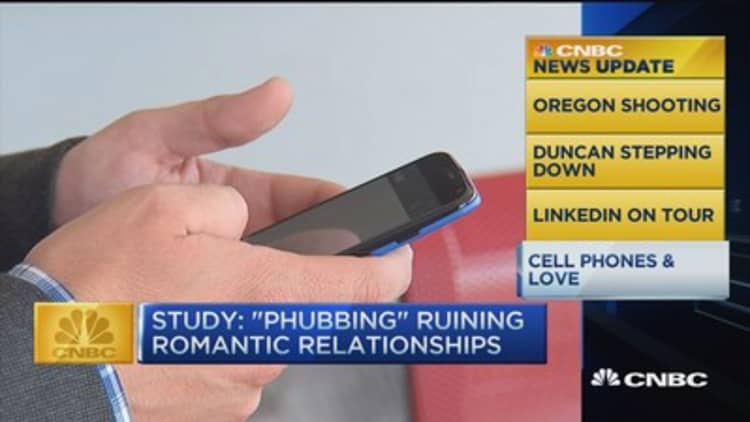Ever been in the middle of a conversation and someone pulls their smartphone out and starts using it?
This frequent hallmark of the modern age could be a threat to happiness, because of technology's ability to isolate humans from each other. That finding comes from Robert Waldinger, a professor who has spent decades studying how to be happy.
Waldinger is the director of Harvard University's Study of Adult Development, which conducted research that studied 268 Harvard College sophomores and 456 inner-city Boston school boys for 75 years beginning in 1938.
The professors in charge of these cohorts at the time – George Vaillant and Sheldon Glueck – used a number of methods such as doing questionnaires, talking to wives and children of the subjects, and obtaining medical records. They looked into the group's mental health, relationships, physical health, working life and how they aged.
"What keeps them happy, none of it was about wealth, none about fame, nothing about work," Waldinger said, during a talk at the World Government Summit in Dubai on Saturday.
"Close relationships were the best predictor of what would keep people happy and healthy throughout their lives," he said. "The idea that relationships would keep us happy is not a surprise … what was a surprise was that close relationships actually predicted peoples' health."
However, the rise of technology like smartphones poses a challenge because of the way it can be a distraction for those using it, and becomes a barrier to human connections.

Waldinger referenced work by another academic, Robert Putnam, who studied adult relationships. In his work "Bowling Alone," Putnam outlined the declining "social capital" in the U.S. — a reduction in the amount of time people spent with each other.
In fact, social capital has declined further, Waldinger said, attributing it to the proliferation of smartphones.
"It's almost certainly these wonderful devices that we all love … that makes us smarter than we have ever been before but that hijack our attention," Waldinger told an audience. "Giving our full attention to another human being may be the greatest gift we have to offer."
So what's the best way to counter the effects of technology and be happy? Waldinger offered some nuggets of wisdom:
- "The best things in life are not things," he said, adding that experiences such as vacations and doing activities with family will make people happier;
- Don't compare yourself to others; and
- Do things with people that you "take for granted."
And finally, be more conscious about how you use technology.
"Tech as the power to isolate or connect us what we need to do is pay much more careful attention to how we are using technology so technology doesn't use and misuse us," Waldinger said.





